The Waste Management Section is part of the Environmental Public Health Division of the Lincoln-Lancaster County Health Department (LLCHD). We work to protect human health and the environment by:
- reducing exposures to hazardous materials;
- assuring proper management and disposal of Special Wastes;
- preventing hazardous waste from being illegally disposed of in the Bluff Road Landfill;
- reducing litter;
- preventing illness and disease caused by improper waste management;
- preventing damage to the environment by improper waste management.
Our staff works with residents, homeowners, contractors, businesses, community/non-profit organizations, and neighborhood associations within Lancaster County to achieve the mission of the LLCHD to protect and promote the public’s health. Please visit our program pages for additional information.
Contact Us: Telephone: 402-441-8021 ~ Fax: 402-441-3890 ~ TTYNE Relay 7-1-1 ~ Hours: 8:00 - 4:30 M-F
Important Links:
Office Hours: 8:00 - 4:30 M-F
Telephone: 402-441-8002
Fax: 402-441-3890
TTYNE Relay 7-1-1
The Lincoln-Lancaster County Health Department’s Special Waste Program protects public health and the environment by assuring that industrial and business waste is properly managed. One main program goal is to prevent hazardous waste from being disposed of in the Lincoln Landfill. Each business that generates any of the 35 different special wastes must complete an inventory and be issued a permit to dispose of waste. This process helps identify reuse and recycling options for the businesses, which can greatly reduce their disposal costs. When illegal activity is suspected, Health staff conducts investigations and takes appropriate enforcement action. This includes assuring that all waste haulers are permitted and that they pay the waste hauler occupation tax on all regulated waste.
If you need any technical assistance or waste information, contact the Lincoln-Lancaster County Health Department at 402-441-8002. We are available Monday through Friday, 8am to 4:30pm on the second floor at 3131 "O" Street.
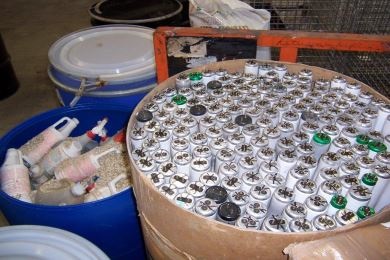
Conditionally Exempt Small Quantity Generator (CESQG) Event Information
Conditionally Exempt Small Quantity Generator (CESQG) Event Information
Conditionally Exempt Small Quantity Generator (CESQG) collection events assist eligible businesses by providing disposal or recycling of hazardous waste at reduced prices. Smaller businesses such as non-profits, churches, childcare centers, and home occupations may be unable to find disposal companies to manage their hazardous waste because of low volumes generated or may find that costs are prohibitive. Lancaster County has partnered with a federally licensed contractor to provide periodic collection of acceptable hazardous waste at volume pricing. Your participation is completely voluntary. If you are a business in Lancaster County and want to participate is this voluntary program contact Lincoln-Lancaster County Health Department at 402-441-8002.
Qualifications:
Businesses that generate less than 27 gallons or 220 pounds of hazardous waste and less than 2.2 pounds of acutely hazardous chemicals per month may qualify for this program. The most common types of small businesses that qualify are painters, print shops, auto shops, builders, local government agencies, and small medical offices.
Benefits:
This is an excellent opportunity for small businesses to properly and economically dispose or recycle hazardous waste. Some compelling reasons to participate are:
- Reduced Costs – Only a fraction of the cost you would pay through directly contracted services.
- Reduced Paperwork - Exemption from hazardous waste manifests and document fees.
- Reduced Liability – The federally licensed contractor assumes generator status of the hazardous waste and maintains all permits and approvals required.
- Fewer Permits – Materials disposed of through this program would not require special waste permitting.
- Convenient Schedule – An appointment time will be arranged with you. Drop off of waste is during the twice annual, one day event at a designated location.
Wastes that are accepted are:
Aerosols, corrosives, pesticides, flammable solids or liquids, adhesives, asbestos, mercury, poisons, paint, solvents, cylinders, oxidizers, photo fluids, PCB ballasts and mineral spirits.
Please Note: Radioactive materials, Explosives, and Biohazards/Infectious wastes are NOT accepted.
If you are a business in Lancaster County and want to participate is this voluntary program contact Lincoln-Lancaster County Health Department at 402-441-8002. Also, please print, fill out, sign and send the CESQG Waste Form(PDF, 302KB) to either our email: spwaste@lincoln.ne.gov or fax number: 402-441-3890 upon completion.
Recycling, Disposal and Pollution Prevention Options
Recycling, Disposal and Pollution Prevention Options
Many business wastes can be recycled please use our quick links below to help guide you in recycling your materials:
Rules & Regulations
Rules and Regulations
There are state and local regulations that businesses need to follow when disposing waste. Below you will see a list of rules and regulations for your reference. For additional information contact the Lincoln-Lancaster County Health Department’s Special Waste Program at 402-441-8002.
Special Waste & Hazardous Waste
Special Waste
Special Waste has the potential to create a negative effect on the public health or the environment. Because of its characteristics, special waste requires special handling at the Landfill or is regulated by the Nebraska Department of Environment and Energy, and City of Lincoln’s Municipal Code.
Our goal is to ensure the proper management of wastes from industries, commercial businesses, and home occupations that may pose a hazard to health and the environment emphasizing pollution prevention at the source.
Here are some additional quick links that will help businesses identify their needs with special waste:
Hazardous Waste
How do I know if my waste is hazardous?
Hazardous waste is a waste with properties that make it dangerous or potentially harmful to human health or the environment. A RCRA hazardous waste is a waste that appears on one of the four hazardous wastes lists (F-list, K-list, P-list, or U-list) found in the Code of Federal Regulations Title 40 that governs hazardous waste. To find out if a waste is a regulated hazardous waste under RCRA Subtitle C, the first step is to determine if the waste meets the definition of "solid waste" under RCRA Subtitle C. For more information on this topic, see the Definition of Solid Waste area. For more information on characteristic and listed wastes, see the Hazardous Waste area.
What Generator Status is My Business?
The EPA’s webpage on Hazardous Waste Generators will help your business determine the generator status that applies to your organization.
Here is a list of hazardous waste transporters.(PDF, 86KB)
For additional information contact the Lincoln-Lancaster County Health Department’s Special Waste Program at 402-441-8002.
Office Hours: 8:00 - 4:30 M-F
Telephone: 402-441-8021
Fax: 402-441-3890
TTYNE Relay 7-1-1
The Lincoln-Lancaster County Health Department (LLCHD) maintains a response team with advanced training in handling hazardous materials and capable of addressing public health and environmental emergencies throughout Lancaster County. LLCHD’s response team is available 24/7/365 to provide all surrounding fire and law enforcement agencies with assistance with hazardous material spills, illegal dumping, air, soil and water impacts, and waste disposal. The knowledge and experience of LLCHD’s response team allows for a timely assessment of public health and environmental risks from a chemical exposure, a quick and decisive plan to address and control the situation, and the necessary skills and equipment to provide a safe and efficient cleanup.
To report an emergency, call 911. For general questions on Emergency Response/HAZMAT call the Health Department at 402-441-8021.
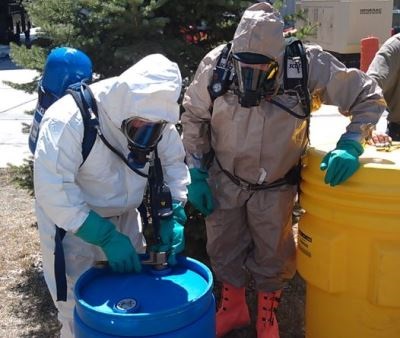
Center Hours: Wednesdays and Fridays 9am - 1pm, and the third Saturday each month between 9am - 1pm (Closed on Federal Holidays)
Seasonal Extended Hours: (May through August) Wednesdays 9am - 6pm
Telephone: 402-441-8021
Address: 5101 North 48th Street
Fax: 402-441-3890
TTYNE Relay 7-1-1
Lincoln's Hazardous Waste Center serves residents of Lincoln and Lancaster County as your safe, environmentally responsible location for management of toxic chemicals and hazardous waste. Best of all, there is no cost to residents for their household hazardous waste. Also, businesses that produce very small quantities of hazardous waste may qualify for disposal events.
Lincoln's Hazardous Waste Center is conveniently located at 5101 N 48th Street, adjacent to Lincoln's N 48th Street Solid Waste Disposal Facility, where multiple materials can be recycled or disposed of safely.
GoodToGo-Lincoln's Reuse store is now open! Get quality products for your home, garden, hobbies, and more at no cost.

FOR MORE INFORMATION CALL 402-441-8021
 Visit Us on Facebook
Visit Us on Facebook
Household Hazardous Waste Mobile Collection Events
Spring Collections
Friday, April 24th from 2-6 pm, Hickman, NE, Exact location TBA
Saturday, April 25th from 9 am to 1pm, Star City Shores, 4375 S. 33rd Ct., Lincoln, NE
Fall Collections
Friday, September 25th from 2-6 pm, Malcolm, NE, Exact location TBA
Saturday, September 26th, 9 am to 1 pm, Star City Shores, 4375 S. 33rd Ct., Lincoln, NE
We will be OPEN the following Saturdays in 2026 From 9am to 1pm:
- January 17th
- February 21st
- March 21st
- April 18th
- May 16th
- June 20th
- July 18th
- August 15th
- September 19th
- October 17th
- November 21st
- December 19th
People who anticipate needing assistance with the removal of hazardous waste may contact 402-441-8021 for consultative assistance.
We do not accept water-based/latex paint.
What To Bring
Use this room-by-room checklist to gather some of the items that are accepted at Lincoln’s Hazardous Waste Center. If you’re unsure whether we’ll accept it, you can contact us in advance or bring it and we’ll let you know. 
| Healthy Homes Check List |
Use It Up |
Store It Safely |
| Kitchen |
Degreaser |
|
|
| Floor Cleaner |
|
|
| Oven Cleaner |
|
|
| Bath & Laundry |
Bleach |
|
|
| Disinfectant |
|
|
| Drain Cleaner |
|
|
| Spot Remover |
|
|
| Upholstery Cleaner |
|
|
| Craft/ Hobby Areas & Garage |
Adhesive |
|
|
| Brake Fluid |
|
|
| Insecticide |
|
|
| Mercury |
|
|
| Mixed Fuels |
|
|
| Oil-based paint |
|
|
| Paint thinner/stripper |
|
|
| Pool Chemicals |
|
|
| Rodenticide |
|
|
| Thermostats |
|
|
| Varnish/Stain |
|
|
| Weed Killer |
|
|
| Latex Paint: Non-hazardous, so not accepted at the center. Dry until solid and dispose in garbage.(PDF, 359KB)
|
| Unused/Expired medication: nebraskameds.org for disposal information |
Do Not Bring
|
Ammunition and Explosives
|
Batteries
|
Electronics & Computers
|
|
Fire Extinguishers
|
Large Propane Grill Cylinders
|
Latex Paint
|
|
Tires
|
Used Oil
|
|
Don't know what to do with products like batteries, tires, and electronics that are not accepted at Lincoln's Hazardous Waste Center? Utilize the Your Guide to Saving the Planet or La guía para salvar el planeta(PDF, 2MB) for reduction, reuse, recycling and disposal options.
Do you operate a non-profit organization or business that produces very small quantities of hazardous waste, such as an auto shop, property management company, or painting operation? Does your organization or business produce less than 220 pounds of hazardous waste per month? If you answered "yes" to both questions, you may qualify to use Lincoln's Hazardous Waste Center. This can reduce your overall costs for safe and legal hazardous waste disposal and transportation services. See our Business Waste page for more information on this program that offers big benefits to businesses that produce small quantities of hazardous waste, or call 402-441-8002.
Household Toxics Reduction
Lincoln’s Hazardous Waste Center is just a single part of the larger effort to help residents reduce their use of hazardous household chemicals.
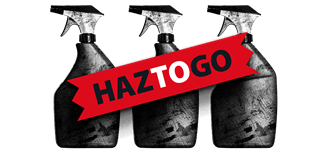
Partial funding for this program is provided through generous grants from The Nebraska Environmental Trust and the Nebraska Department of Water. Energy and Environment.
Office Hours: 8:00 - 4:30 M-F
Telephone: 402-441-8020
Fax: 402-441-3890
TTYNE Relay 7-1-1
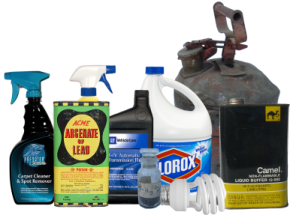
The goal of the Household Toxics Reduction Program is to help people make safer choices with purchasing and the disposal of hazardous and toxic products. Many everyday consumer products can be dangerous when improperly used, stored or thrown away in the trash. Common examples include pesticides, oil-based paint, leftover fuel, mercury-containing items (CFLs, thermometers), household cleaners and automotive chemicals.
Be a Smart And Safe Consumer!
Research the type of products you need to effectively perform the job and that are best suited for the job.
- Only purchase the amount of product you need.
- Before buying a large container of a product, purchase a smaller container first so you can use it and make sure it meets your needs.
- If you don’t need it, don’t buy it!
- Federal Emergency Management Association (FEMA): Helpful Household Hazardous Materials Training for Citizens.
Choose products that contain the fewest toxic or hazardous ingredients. The easiest way to do this is to check for signal words and statements on product labels:
| Signal Word |
Meaning |
| Poison |
Fatal if swallowed, absorbed through the skin or inhaled |
| Danger |
Fatal if swallowed, absorbed through the skin or inhaled |
| Warning |
May be fatal if swallowed, absorbed through the skin or inhaled |
| Caution |
Harmful if swallowed, absorbed through the skin or inhaled |
| No Word |
Least hazardous, still could cause adverse effects |
Reduce It! Purchase Less-Toxic Alternatives
- Choose products that have low or no volatile organic compounds (VOCs). VOCs are toxic chemicals released into the air.
- Choose chlorine-free products.
- Choose water-based glues, adhesives and paints.
- Save money and explore less toxic alternatives(PDF, 347KB) to household cleaners, home improvement, garage, and personal care products.
- EPA Safer Choice Program: Safer Choice helps consumers, businesses, and purchasers find products that perform well and are safer for human health and the environment.
Reuse It, Recycle It and Safe Disposal
If products have not expired, are in their original container, and considered safe to use per label instructions they should be shared with family, friends, neighbors, or local organizations that accept donations or have a use for them. To find a local reuse option, visit the This is your guide to saving the planet(PDF, 3MB). When products are no longer wanted they become household hazardous waste for disposal at HazToGo – Lincoln’s Hazardous Waste Center. Disposal costs money and resources, which is why it should be a last resort.
Store It Up & Use It Up
Always be aware of the type of hazards you are bringing into your home. Some products and containers are similar in appearance to food and beverages. Children who have not learned to read or adults that have problems with their vision may mistake a hazardous products for edible items.
Don’t forget your pets! Household pets cannot tell if a product is dangerous so it is important to prevent access to both stored and currently in use materials. For more information on keeping your pets safe, see the Food and Drugs Administration's “Potentially Dangerous Items for Your Pet.”
- Use only what is needed.
- Read product labels carefully.
- Use products in well-ventilated areas. If working indoors open windows and use exhaust fans.
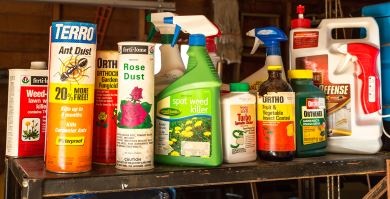
- Do not eat, drink or smoke while using hazardous products.
- Wear proper safety equipment and protective clothing.
- Do not mix products unless directed to do so by the label directions.
- Do not leave hazardous products unattended.
- When finished, seal products and refasten all childproof caps.
- Keep hazardous products up and away from children and pets.
- Post emergency numbers near your telephone.
- If pregnant, avoid any potential exposure to toxic chemicals.
Office Hours: 8:00 - 4:30 M-F
Telephone: 402-441-8035
Fax: 402-441-3890
TTYNE Relay 7-1-1
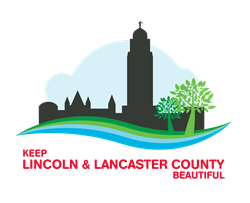
Overview
Keep Lincoln & Lancaster County Beautiful (KLLCB) is a program of the Lincoln-Lancaster County Health Department and an affiliate of Keep America Beautiful. The goals of KLLCB are:
- A clean, healthy and safe community.
- Organizing residents to take action.
- Reducing litter through cleanup projects.
- Preventing litter through education.
To report someone who has littered, please visit the Keep Nebraska Beautiful Hotline web page or call 877-665-4887.
Learn About Litter
Why Do People Litter?
- Approximately 85% of littering is the result of individual attitudes. The individual person and their behavior is the most important factor in whether littering will occur.
- One of the biggest reasons why people litter is the prevalence of existing litter - individuals are much more likely to litter into already littered environments. The presence of litter in an area sends a message that littering is acceptable.
- People often feel it is acceptable to litter where it is someone else’s job to clean up (such as a school with a custodial/maintenance staff that manages school grounds) or where there is no sense of ownership.
- Other factors that can contribute to litter include excess packaging, availability of garbage and recycling receptacles and lack of enforcement for existing litter regulations.
- Studies have found that young people, under the age of 35, are twice as likely to litter as people between the ages of 35-49, and three times as likely to litter as people over 50.
Why Does it Matter?
Litter can have several negative effects on a community, including the following:
- Property values decrease in littered areas.
- Crime increases in littered areas.
- Litter has a large financial impact. It costs the U.S. almost $11.5 billion annually, money that could be used for other community improvements.
- New businesses and residents are less likely to locate in littered areas.
- Litter pollutes the environment and can be hazardous to wildlife.
- Recreation areas become less attractive and tourism can decrease.
Additional Resources
Cleanup Grants
Community Improvement Grant Program
Community Improvement Grant opportunities have been expended for the fiscal year. Please check back in February of 2026 for an update.
- Promotes litter cleanups and recycling in Lincoln and Lancaster County.
- Grants are awarded to community groups and individuals who conduct litter cleanups in public areas.
- This includes areas along streets, curbs, alleys and sidewalks, in parks and other open spaces.
Neighborhood Association and County Grant Program
Neighborhood Association Grant opportunities have been expended for the fiscal year. Please check back in February of 2026 for an update.
- These grants are available to neighborhood associations and Lancaster County hamlets/villages/cities only.
Not sure which grant is right for you? Check out our Frequently Asked Questions.(PDF, 423KB)
Resources
Volunteer
Volunteer For A Clean, Green, Healthy Community
Whether it is picking up a piece of litter, using your reusable grocery bags, or ensuring that recycling happens in your office, we want to you to make our community a little bit cleaner, greener, and healthier every day.
KLLCB’s organizational goals are accomplished by these every-day efforts that change our behaviors, as well as volunteer opportunities. Volunteer opportunities can accommodate both groups and individuals. Most projects have a flexible schedule and can accommodate the needs of the volunteers. Contact KLLCB at kllcb@lincoln.ne.gov to begin a conversation about volunteer opportunities.
Volunteer Project Examples
Litter cleanups: Help maintain a clean City and County. Cleanups must take place in public areas including streets, alleys, County roads, parks, schools and recreation areas. Volunteers are assigned a specific area for cleanup and are supplied with trash bags, safety vests and other equipment. These projects can be scheduled throughout the year. They are a great volunteer opportunity for groups and are open to all ages.
Storm Water Awareness Program (SWAP): Label storm drains with “Drains to Creek” markers to help prevent waterway pollution. You decide the time and number of volunteers and we’ll map out an area of storm drains that need labels. For more information on the SWAP program look within the Programs section on this page.
Special Projects: Sometimes we need volunteers for special events or activities that only happen a few times a year. These organized efforts will provide a time, place, and specific activity in the description.
Programs within Keep Lincoln Lancaster County Beautiful
Brush Disposal Program
Coupons are available to residents through KLLCB that allow free disposal of one load of brush/tree limbs to the North 48th Street Transfer Station. Contact the KLLCB office at 402-441-8035 for information on obtaining brush coupons.
Fireworks Debris Prevention Program
A collaboration between Lincoln and Lancaster Health Department and Lincoln Transportation and Utilities.
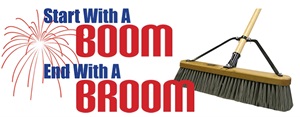
The 4th of July - a time for parades, backyard barbecues and of course, fireworks. With the focus on fun, an important part of the celebration often gets forgotten. Every year following Independence Day, Lincoln and other Lancaster County communities are littered with fireworks debris. This summer Keep Lincoln & Lancaster County Beautiful (KLLCB) encourages residents to be responsible community members with one simple request: start with a boom, end with a broom.
For a Clean Community
Preventing litter is essential to a clean, healthy and safe community. Litter tends to accumulate in places that are already littered, and in littered communities property values go down, crime rates go up and businesses stay away. Local governments spend millions each year keeping communities clean.
For a Healthy Environment
Litter is harmful to the natural environment. Left unattended, it can be washed down storm drains and into streams, rivers and lakes. This makes our natural areas look bad and can harm wildlife. Fireworks in particular are made from several potentially harmful substances, including gunpowder and various metallic compounds. These substances can pollute air, water and soil
To Be a Good Neighbor
Cleaning up your litter is also part of being a good neighbor. Litter rarely stays in one place and someone else may get stuck cleaning up your mess.
Here’s a few helpful tips for cleaning up your fireworks debris:
- Have the right cleanup equipment ready.
- Allow spent fireworks to sit for several minutes.
- Use a broom to sweep up debris.
- As a final precaution, temporarily place in a metal bucket or a bucket with sand or water.
- Place cool fireworks in regular trash for disposal.
- Fireworks debris must NOT be taken to City recycling collector sites.
- Unused fireworks should NOT be placed in regular trash bins or recycling bins.
- While picking up debris in their neighborhoods, residents are encouraged to participate in the “If It’s In Our Streets, It’s In Our Streams” fireworks awareness campaign.
What We’re Doing: KLLCB is working with community partners to get fireworks debris cleaned up this 4th of July. We’ll be working with neighborhoods, County villages, local media and fireworks retailers to remind residents to clean up, support community cleanups and conduct surveys to determine the extent of the fireworks debris problem.
Know the law. View fireworks regulations for the City of Lincoln.
Great American Cleanup
The Great American Cleanup (GAC), a program of Keep America Beautiful, is the nation's largest community improvement program with about four million volunteers participating in more than 20,000 communities across the country. The GAC encourages residents to become involved in their community and help build a sense of pride and ownership around their local environment.
March through May of each year KLLCB organizes and supports cleanup projects throughout Lancaster County. Businesses, community organizations, families, clubs and individuals are encouraged to conduct litter cleanups in public spaces. To be a part of the Great American Cleanup, visit our volunteer section on this page.
Illegal Dumping
Every year KLLCB spends thousands of dollars to clean up tires, furniture, construction debris, garbage and other materials illegally dumped by residents. Legal disposal options for all of the items commonly cleaned up by KLLCB can be found in the City’s This is your guide to saving the planet(PDF, 3MB).
What can you do? Report illegal dumping acts in progress. If you are in the City of Lincoln CALL the Lincoln Police Department at (402) 441-6000. Outside City limits CALL the Sheriff's Department at (402) 441-6500. If you come across an illegal dump site, report it to the Police, Sheriff, or call the Health Department at (402) 441-8002.
International Coastal Cleanup
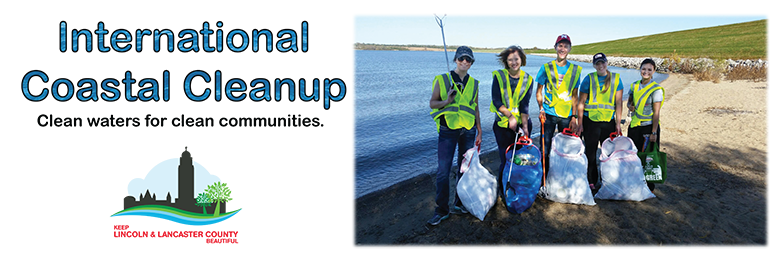
Do you value clean lakes and streams?
Every September and October hundreds of volunteers in Lincoln and Lancaster County donate their time to keep local waterways clean, healthy and safe. As part of the International Coastal Cleanup (ICC) program, KLLCB organizes volunteers to remove litter and debris from local streams, rivers and lakes.
These cleanups are essential if you enjoy fishing at Wildwood, boating at Branched Oak or camping at Wagon Train. When visiting these sites you can't help but notice bottles, cans and old fishing gear littering shorelines and park areas. Volunteers for the ICC program are asked to complete data cards that record the amount of litter collected.
The cleanliness of our waterways in Lancaster County can impact rivers and oceans downstream. While it's true the nearest ocean is almost one thousand miles away, 80% of trash found in oceans starts out on land. For example, an empty soda bottle left on the ground can enter storm drains in Lincoln, travel to area streams and rivers and potentially reach the ocean. Even though oceans are not part of our daily lives, trash-filled seas affect the quality of life for people in Nebraska in several ways:
- Air - oceans produce half the world's oxygen and absorb nearly one-third of manmade carbon dioxide emissions.
- Food- seafood is a large food source for millions of people. Ingredients that go in to other foods (such as peanut butter, beer and soy milk) also come from the ocean.
- Transportation - Many everyday goods come from other countries and must travel by ship to get here.
- Livelihoods - approximately half the world's population lives in coastal zones, and the ocean sustains millions of jobs. A large tourism and recreation industry is also dependent on the ocean.
- Medicines & cosmetics - ocean resources can be found in everything from shampoos and makeup to medicines that fight cancer and other diseases.
Litter and debris is also harmful to aquatic life. It destroys habitat, harms or kills animals through entanglement or ingestion and transports invasive species.
ICC started in Texas in 1989 and has grown into an annual event that mobilizes millions of volunteers around the world to clean beaches, lakes, riversides and other waterways.
Groups with boats, canoes and kayaks are needed to reach inaccessible areas. Cleanup equipment and detailed instructions are provided by KLLCB. For more information call 402-441-8035 or e-mail: kllcb@lincoln.ne.gov
Litter Prevention for Businesses
KLLCB works with local businesses to encourage them to keep their parking lots, sidewalks, curbs and gutters free of litter, weeds and other debris. A checklist is available for businesses that contains strategies and tips to help reduce litter and keep a clean storefront. Of particular concern to businesses is cigarette litter. Cigarettes are the most frequently littered item, with an estimated 4.5 trillion non-biodegradable cigarette butts littered worldwide every year. Cigarette litter not only creates an unsightly storefront- the toxic residue in cigarette filters is damaging to the environment. KLLCB’s business checklist provides techniques to help reduce cigarette litter. For more information about cigarette litter, visit Keep America Beautiful
Download(PDF, 46KB) the Litter-Free Business Checklist. If you need additional assistance keeping your business clean and litter free, contact the KLLCB office at 402-441-8035.
Storm Water Awareness Program (SWAP)
Presentation about the Storm Water Awareness Program
Unlike the water in your house, rainwater – and the water we use on lawns & gardens – does not go to a wastewater treatment plant. Instead, this water runs off into storm drains and eventually reaches local lakes and streams. Anything picked up from this runoff or dumped directly into storm drains - litter, grass clippings, fertilizers, pesticides, motor oil, and sediment – also enters the natural environment. These pollutants can harm fish and other aquatic life and may enter groundwater supplies.
The SWAP program helps educate residents about the importance of keeping local waterways clean. As part of this effort, volunteers are recruited to mark storm drains with a “No Dumping - Drains to Creek” message and distribute educational material to area households.
Some Facts About Storm Water Pollution
- Wildlife can mistake litter for food and can become entangled or ingest it, blocking airways and systems.
- Pet and yard waste contain both bacteria and oxygen-consuming materials that lead to fish kills.
- Homeowners often apply much more fertilizer than necessary. Excess fertilizer can lead to algal blooms which kill everything in lakes.
- Americans improperly dispose – by illegally dumping into storm drains, directly on the ground, or discarding in landfills – of an estimated 200 million gallons of just used motor oil annually.
- One gallon of used oil has the potential to contaminate up to 1 million gallons of drinking water.
What Can You Do?
- Don't pour anything except water in a gutter or down a storm drain.
- Keep your neighborhood free of litter and yard waste.
- Properly dispose of pet waste.
- Fix your vehicle's oil leaks.
- Don't overuse fertilizers or pesticides.
- Use a mulching mower to reduce the need to fertilize.
- Take used motor oil and antifreeze to a recycling location.
- Wash out paint brushes used with latex paint in your household sink.
- Dispose of leftover paint properly. Visit the Household Hazardous Materials page for more information.
Don't be a part of the pollution source! If you would like to help with this program visit our volunteer section on this page.
FAQs
Frequently Asked Questions
Here you will find frequently asked questions related to maintaining a clean community. If you do not find an answer to your question here, please contact the KLLCB office.
Also available is our Clean Community Guide(PDF, 1MB) . This Guide provides additional information on how you and your neighbors can work toward a clean community, including quality of life ordinances, information on pet waste, illegal signs, and wood piles.
KNB Litter Hotline - If I see someone littering from a vehicle, where do I report it?
To report someone who has littered visit the Keep Nebraska Beautiful Litter Hotline or call 877-665-4887. You will need the license plate number, description of the vehicle, and the time and location the littering occurred. You can also contact the KLLCB office. For more information see the City of Lincoln Municipal Code on littering, chapter 8.22.
Garbage Problems - I have a garbage problem in my neighborhood. Who do I call?
Call 402-441-8020. For more information see the City of Lincoln Municipal Code on garbage, chapter 8.32.205.
Household Hazardous Waste - I have household hazardous waste, what do I do with it?
To find out how to store, manage, and dispose of household hazardous waste properly, please visit the Household Hazardous Waste page or call 402-441-8021.
Property Upkeep - Who do I contact if there are rundown buildings on my neighbor's property?
Inadequately maintained housing may be in violation of the City's Quality of Life Ordinances and the Building and Safety Department is in charge of handling these complaints. To make a complaint about inadequately maintained housing please call 402-441-7521 or go online to UPLNK, the City's free app for reporting quality of life issues. For more information see the City of Lincoln Municipal Code on Unsafe Structures & Equipment, chapter 21.05.160.
Abandoned Vehicles - Who do I call about abandoned or junk vehicles?
To report an abandoned or junk vehicle call the non-emergency police line at 402-441-6000. For more information see the City of Lincoln Municipal Code on Keeping of Hazardous Vehicles Unlawful; Exceptions, chapter 8.02.020.
Snow Removal - Who do I contact if my neighbor is not clearing snow from their sidewalk and driveway?
For more information on snow removal see the City of Lincoln Municipal Code on Public Property & Public Ways City, chapter 14.80, or call 402-441-7541.
City Service Request - How do I contact different City departments about questions or complaints I have?
To submit a request for help from a City agency, visit UPLNK and fill out the request form.
Office Hours: 8:00 - 4:30 M-F
Telephone: 402-441-8021
Fax: 402-441-3890
TTYNE Relay 7-1-1
The Solid Waste Nuisance Program works to prevent illness and disease caused by improper waste management. Waste not properly managed can become a public health nuisance which is in violation of Lincoln municipal Code Title 8-Health and Sanitation. The following information can help guide you with common solid waste questions. If you need additional guidance, please contact our office at 402-441-8021 and speak with a member of our staff.
Common Solid Waste Items Guidance
Garbage Containers
All garbage and refuse must be stored in proper receptacles (a galvanized metal or rigid plastic container not greater than 32 gallons in size) or toters, which have a tight fitting lid and is waterproof. A plastic bag is not considered a proper trash container. All dwellings are required to have garbage service. Call 402-475-3876 for information on refuse haulers. More information on Garbage Container features is available here.(PDF, 2MB)
Refuse Accumulation
Brush, trash, refuse, litter, scrap metal, appliances, vehicle parts or other debris cannot be allowed to accumulate and stored on the premises in a way that promotes rodent or insect harborage.
Wood
It is recommended that scrap wood, lumber or firewood be neatly stacked one foot off the ground and away from buildings in order to prevent rodent and insect infestation.
Vehicle & Vehicle Parts
Inoperable, wrecked or dismantled vehicles and all parts, including tires, must be stored inside or removed from the property.
Hazardous Materials
Vehicle batteries are considered hazardous and must be properly stored indoors in a safe place. Used oil must be properly stored indoors and recycled. Pesticides, herbicides, antifreeze and other hazardous chemicals must be safely stored indoors. Visit the city website for more information on hazardous materials.
Standing Water
Containers which collect water create a mosquito breeding habitat. This includes tires, cans, plastic containers and any container that can collect water. Rinse bird baths at least twice a week. Empty containers at least twice a week from April - October.
Pet Manure
Remove pet manure every five days or more if necessary. Bag and dispose of in a proper garbage container. Please refer to City Ordinance 6.08.155.
Weeds
Weeds provide mosquito and rodent harborage. Weeds and grass must be kept six inches or less in height.
Yard Waste/Compost Piles
If grass clippings are used as mulch, spread out thinly to dry in order to avoid odors. Compost piles must be properly constructed and maintained (regularly mixed at least weekly), and located 25 feet from any adjacent dwelling unit. They should not contain meat scraps, bones, grease, whole eggs, dairy products or pet waste. (Contact UNL Extension at 402-441-7180 for more information.)
Appliances
Appliances with doors cannot be stored outside unless secured so that the door cannot be opened, or the door is removed. Visit the city website for more information on recycling.
Tires
Tires must be stored so water cannot collect in them. Tires should be recycled. Check with your waste hauler before placing tires at the curb. Many tire retailers will dispose of used tires for a fee, check with a dealer. Visit the city website for more information on recycling.
Brush Piles
Brush piles are not allowed as they provide prime habitat for rodents and other disease carrying animals. Set out brush in easily managed bundles, 4 feet or less in length, for the refuse hauler.
Solid Waste Nuisance Complaints
When solid waste is not properly managed it can become a public health nuisance. Some examples of solid waste nuisances which can affect public health are listed below:
- Garbage (animal, fruit or vegetable waste)
- No garbage service, garbage not in cans with lids
- Litter
- Tires off rims
- Illegal salvaging
- Improper composting
- Sewage discharge
- Vehicle leaking automotive fluids
- Chemicals stored outside or are leaking
-
In most cases, citizens report complaints to the Health Department and the property owner and occupant are notified. Through educational outreach and explanation of the codes, staff are able to obtain compliance in a majority of the cases. When compliance is not achieved enforcement action may be taken.
All rental property in Lincoln must have garbage service provided by their Landlord. If the property has three or more apartments, Lincoln Municipal Code requires a minimum of twice a week garbage service. Many commercial properties, especially restaurants, will have daily garbage service.
In order for someone to haul garbage or refuse from a home or business they must have a permit from the Lincoln-Lancaster County Health Department. There are over 30 licensed refuse haulers in Lincoln and Lancaster County. To find out who hauls garbage in your neighborhood see what other garbage containers are nearby and get the name and phone number from the container. Or you may call the Lincoln Solid Waste Management Association at 402-475-8360.
To report a property with one of the above nuisance conditions, contact the Health Department at 402-441-8002. The specific address (house number and street) is needed in order to send a letter to the owner of the property and conduct a follow-up inspection. If the situation you are concerned about is not listed, please contact the Health Department so we may direct you to the proper agency. Other agencies that may be able to provide assistance include:
- Building and Safety at 402-441-7785 for junk and debris on residential property. The specific house address is required.
- Lancaster County Extension at 402-441-7180 for pest identification such as mice, cockroaches, and bed bugs.
- Lincoln Police Department at 402-441-6000 for junk cars. A description of the vehicle, the color, make, and model, and specific address are required.
Permits for Salvage, Recycling, Compost and Liquid Waste Hauling Operations
Office Hours: 8:00 - 4:30 M-F
Telephone: 402-441-8020
Fax: 402-441-3890
TTYNE Relay 7-1-1
To operate a salvaging, recycling or composting business operation you must obtain a permit from the Lincoln-Lancaster County Health Department. The property where any commercial salvaging, recycling or composting operations occur must be properly zoned for such activity.
To transport any liquid wastes in Lancaster County or dispose liquid wastes at Lincoln’s treatment facilities, you must obtain a permit from the Lincoln-Lancaster County Health Department. Your truck must pass an inspection administered by the Health Department and the facility where the truck is stored must be appropriately zoned and secure.
You should visit with the Plan Review staff at Building and Safety (402-441-7882) to make sure any property you might be considering for operating a salvaging, liquid waste hauling, recycling or composting operation is properly zoned and doesn’t also need to have a Special Use Permit.
Please call 402-441-8040 if you have questions regarding a commercial salvaging, liquid waste hauling, recycling or composting business.
Commercial Salvaging
Commercial Recycling
Commercial Composting
Cleaners & Liquid Waste Haulers Permit
Waste Haulers License
Business Special Waste Permit
For more information on permits visit our Business page.
To ensure you have the most current fees for all the above permits, see the current Environmental Public Health fee schedule.

Lincoln and Lancaster County's New Reuse Store
5101 North 48th Street
Right next door to HazToGo - Lincoln's Hazardous Waste Center
Hours:
Open Wednesdays, Fridays, and the third Saturday each month between 9 am - 1 pm
GoodToGo is open when HazToGo is open.
For More information, call 402-441-8021.
Introducing GoodToGo, the new reuse store where you’ll find quality products for the home, garden, hobbies, automotive care, and more — all at no cost! These are all gently used or unopened products that have been dropped off at HazToGo, but are still good to go!
Come by to browse shelves of quality products, and then take them home at no cost to you. What a great way to try out products before you buy them! And best of all, you’ll be reducing waste and cost, reusing good products, and helping promote a more sustainable community.
Some of the Products You Can Find at GoodToGo
Inventory changes regularly, so stop in and see if we have what you’re looking for!
- Automotive Care
- Motor oil
- Brake Fluid
- Transmission Fluid
- Antifreeze
- Windshield wiper fluid
- Interior and exterior car cleaners and polishes
- Wood filler and patching
- Paint-related solvents
- Adhesive removers
- Ice melt
- Fertilizers
- Snap-line chalk
- Chainsaw bar oil
- Glue, adhesive, caulk
- Joint compound
- Grout
- Lubricant
- Spray foam insulation
- Wood/deck cleaner
- De-greasers
- Carpet cleaner
- Spray paint
- Stain
- Varnish
HazToGo and GoodToGo work in tandem to reduce waste and promote sustainability. Here’s how they work: Household hazardous waste should be brought to HazToGo. Materials that are no longer usable or safe are disposed of properly. Products that are still good quality and usable are made available at GoodToGo. Stop in, browse, and take some home (limit of 10 items)!